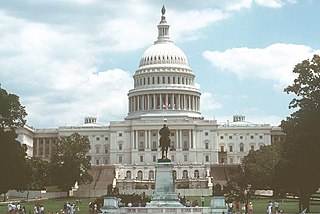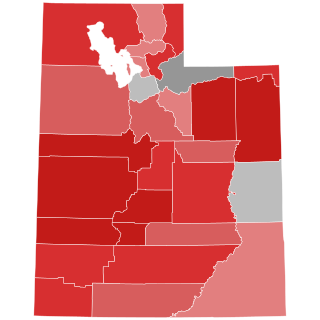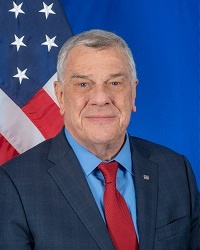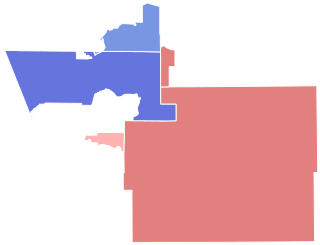
The United States National Security Council (NSC) is the principal forum used by the president of the United States for consideration of national security, military, and foreign policy matters. Based in the White House, it is part of the Executive Office of the President of the United States, and composed of senior national security advisors and Cabinet officials.

The National Academy of Sciences (NAS) is a United States nonprofit, non-governmental organization. NAS is part of the National Academies of Sciences, Engineering, and Medicine, along with the National Academy of Engineering (NAE) and the National Academy of Medicine (NAM).

The 107th United States Congress was a meeting of the legislative branch of the United States federal government, composed of the United States Senate and the United States House of Representatives. It met in Washington, D.C., from January 3, 2001, to January 3, 2003, during the final weeks of the Clinton presidency and the first two years of the George W. Bush presidency. The apportionment of seats in this House of Representatives was based on the 1990 United States census.

The United States Institute of Peace (USIP) is an American federal institution tasked with promoting conflict resolution and prevention worldwide. It provides research, analysis, and training to individuals in diplomacy, mediation, and other peace-building measures.

The 101st United States Congress was a meeting of the legislative branch of the United States federal government, composed of the United States Senate and the United States House of Representatives. It met in Washington, D.C., from January 3, 1989, to January 3, 1991, during the final weeks of Ronald Reagan's presidency and the first two years of George H. W. Bush's presidency.

Lamar Seeligson Smith is an American politician and lobbyist who served in the United States House of Representatives for Texas's 21st congressional district for 16 terms, a district including most of the wealthier sections of San Antonio and Austin, as well as some of the Texas Hill Country. He is a member of the Republican Party. He sponsored the Stop Online Piracy Act (SOPA) and the Protecting Children From Internet Pornographers Act (PCIP). He also co-sponsored the Leahy–Smith America Invents Act.

Stephen Lee Johnson is an American politician who served as the Administrator of the Environmental Protection Agency (EPA) under President George W. Bush during the second term of his administration. He has received the Presidential Rank Award, the highest award that can be given to a civilian federal employee.

The 109th United States Congress was a meeting of the legislative branch of the United States federal government, composed of the United States Senate and the United States House of Representatives, from January 3, 2005, to January 3, 2007, during the fifth and sixth years of George W. Bush's presidency. House members were elected in the 2004 elections on November 2, 2004. Senators were elected in three classes in the 2000 elections on November 7, 2000, 2002 elections on November 5, 2002, or 2004 elections on November 2, 2004. The apportionment of seats in the House of Representatives was based on the 2000 United States census.

Steven Chu is an American physicist and former government official. He is a Nobel laureate and was the 12th U.S. secretary of energy. He is currently the William R. Kenan Jr. Professor of Physics and Professor of Molecular and Cellular Physiology at Stanford University. He is known for his research at the University of California, Berkeley, and his research at Bell Laboratories and Stanford University regarding the cooling and trapping of atoms with laser light, for which he shared the 1997 Nobel Prize in Physics with Claude Cohen-Tannoudji and William Daniel Phillips.

Brenda Lawrence is an American politician who served as the U.S. representative from Michigan's 14th congressional district from 2015 to 2023. A member of the Democratic Party, Lawrence served as mayor of Southfield, Michigan, from 2001 to 2015, and was the party's nominee for Oakland County executive in 2008 and for lieutenant governor in 2010. Her congressional district covered most of eastern Detroit, including downtown, and stretched west to take in portions of Oakland County, including Farmington Hills, Pontiac, and Lawrence's home in Southfield.

Steven Brett Guthrie is an American businessman and politician serving as the U.S. representative for Kentucky's 2nd congressional district since 2009. The district is in central Kentucky and includes Fort Knox, Owensboro, Bowling Green, and a portion of eastern Louisville. Guthrie previously served as a Republican member of the Kentucky Senate.

David J. Hayes is an American attorney and legal scholar who serves in the Biden Administration as Special Assistant to the President for Climate Policy. Hayes has led White House work on clean energy deployment issues, climate resilience and greenhouse gas emission reduction and carbon sequestration initiatives. Hayes also has assisted in developing and implementing the climate-related provisions included in the Infrastructure Investment and Jobs Act and the Inflation Reduction Act.

Islam A. Siddiqui is an Indian-American scientist, and government official, and lobbyist who served as the Chief Agricultural Negotiator in the Office of the United States Trade Representative. Prior to this, he was Vice President for Science and Regulatory Affairs at CropLife America, and a career official in the California Department of Food and Agriculture.

Ernest Jeffrey Moniz, GCIH is an American nuclear physicist and former government official. From May 2013 to January 2017, he served as the 13th United States secretary of energy in the Obama administration. Prior to this, Moniz served as associate director for science in the Office of Science and Technology Policy in the Executive Office of the President of the United States from 1995 to 1997 and undersecretary of energy from 1997 to 2001 during the Clinton administration. He is currently the co-chair and CEO of the Nuclear Threat Initiative (NTI), as well as president and CEO of the Energy Futures Initiative (EFI), a nonprofit organization working on climate and energy technology issues, which he co-founded in 2017.

David Longly Bernhardt is an American lawyer who served as the 53rd United States Secretary of the Interior from 2019 to 2021 in the administration of Donald Trump. He previously was a shareholder at the Colorado law firm Brownstein Hyatt Farber Schreck, where he was an oil and energy industry lobbyist and natural resources attorney. He began working for the United States Department of the Interior (DOI) in 2001, and served as the department's solicitor from 2006 to 2009 and deputy secretary from 2017 to 2019.

The 2022 United States Senate election in Utah was held on November 8, 2022, to elect a member of the United States Senate to represent the State of Utah. Incumbent senator Mike Lee, who was first elected in 2010, won re-election to a third term, defeating Evan McMullin, an independent candidate who was endorsed by the Utah Democratic Party.

Michael G. Kozak is an American diplomat in the United States Department of State who served as Acting Assistant Secretary for Western Hemisphere Affairs from 2019 to 2021. He previously served as U.S. Ambassador to Belarus between 2000 and 2003 and chief of mission at the United States Interests Section in Havana between 1996 and 1999, and was a nominee to be U.S. Ambassador to El Salvador in 1991. He achieved a measure of prominence in the 1980s for his attempts to negotiate with Panamanian leader Manuel Noriega to leave power.

A special election was held on June 1, 2021, to fill the vacancy in New Mexico's 1st congressional district created by Representative Deb Haaland's resignation from the United States House of Representatives to become the Secretary of the Interior in Joe Biden's administration.



















